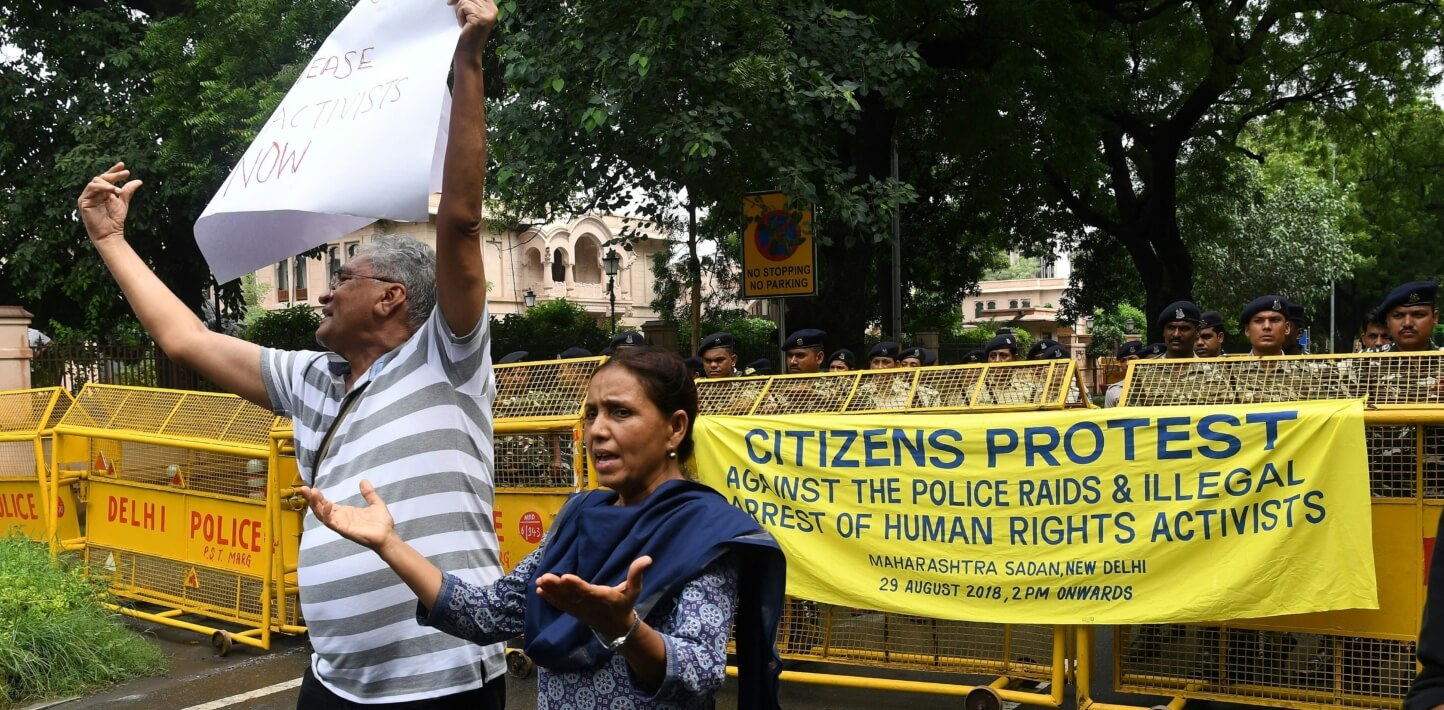Ahead of India’s evaluation by the Financial Action Task Force (FATF), international human rights organisations have called on the global terror funding watchdog to call on the Indian government to stop harassing human rights defenders in the country by misusing counterterrorism regulations.
Amnesty International, Human Rights Watch (HRW) and the Charity and Security Network (C&SN) have urged FATF to document the crackdown on dissent happening in India.
Indian Government Exploiting FATF Recommendations
The report mentions, “Indian authorities have exploited FATF’s recommendations, which aim to prevent terrorist financing as part of a coordinated campaign to restrict civic space and stifle the rights to freedom of expression, association, and peaceful assembly.”
Amnesty International, Charity & Security Network and Human Rights Watch call on the Financial Action Task Force (FATF) to document the crackdown on dissent happening in India. #FATF must tell the Indian govt to stop abusing counterterrorism regulations.https://t.co/WyhATLgXuF
— Amnesty India (@AIIndia) November 4, 2023
The FATF recommendations consist of 40 international standards to guide national authorities to implement goals.
Recommendation 8 of the FATF stated that only the non-profit organisations identified through a careful “risk-based” analysis on factors such as their vulnerability to being used as a front to finance terrorism-related activities should be scrutinised.
In October 2023, the international watchdog revised its recommendations, leaving “no room for implementation of measures that are not proportionate to the assessed terrorist financing risks and are therefore overly burdensome or restrictive for organisations working in the not-for-profit realm.”
The organisations also asked FATF to urge the “Indian government to stop prosecuting, intimidating and harassing human rights defenders, activists and non-profit organisations in the country on the pretext of countering terrorist financing.”
FATF is a 40-member-country body mandated to tackle money laundering, terrorist financing, and other threats to the integrity of the global financial system, which India joined in 2010.
Use of Domestic Laws to Silence Critics
The report mentions that since 2014, Indian authorities have used provisions in domestic law to silence critics and shut down operations of non-profits in the country.
This includes cancelling their foreign funding licenses and prosecuting them using counterterrorism law and financial regulations.
HRW Deputy Asia Director Meenakshi Ganguly said, “India’s three laws together have created a dangerous arsenal with debilitating consequences for civil society and human rights activists.”
The report mentions the Foreign Contribution (Regulation) Act (FCRA), the Unlawful Activities (Prevention) Act (UAPA), and the Prevention of Money Laundering Act (PMLA) as the laws being misused by the Indian government.
All these laws were altered after the 2010 Mutual Evaluation Review by FATF.
Foreign Contribution (Regulation) Act
Referring to the FCRA enacted in 1976, the report mentions that the government has used the law to cancel the licences of over 20,600 non-profit organisations, including 6,000 in 2022, blocking their access to foreign funding.
“The Indian government has particularly targeted human rights groups and activists working to protect the rights of the most socially and economically marginalised populations,” the organisations said.
Unlawful Activities Prevention Act
Mentioning India’s primary counterterrorism law, the UAPA, the report alleged that the government has used it to arrest and detain human rights defenders and activists arbitrarily.
The report highlights that India has used the counterterrorism funding provisions of the law against several student activists and human rights activists, several of whom have remained in detention without trial.
Accusing the Indian government of using UAPA to keep critics locked up for years, the report said that it was using “the judicial process itself as a tool to persecute and punish government critics.”
Prevention of Money Laundering Act
India enacted the 2002 PMLA to satisfy membership conditions of the FATF.
India: Stop Abusing Counterterrorism Regulations https://t.co/qbZuTxQilZ
— Human Rights Watch (@hrw) November 6, 2023
The report mentions that the Indian government uses the law to attack, intimidate and harass human rights defenders and non-profits.
Amnesty International India was attacked under PMLA in September 2020, thus putting its work on hold for the past three years.
The report comes as the fourth periodic review of India’s record on tracking illicit funding has started on 6 November.

